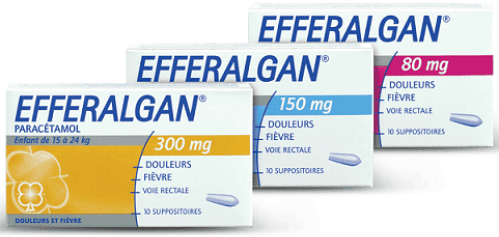This is an automatically translated article.
The main ingredients of Agidorin are Paracetamol, Phenylephrine HCl and Chlorpheniramine maleate. The drug works to treat symptoms such as fever, headache, runny nose caused by seasonal allergies, runny nose, stuffy nose, sneezing.1. What is Agidorin and how does it work?
Agidorin drug has the main ingredients: Paracetamol 500 mg, Phenylephrine HCl 5 mg and Chlorpheniramine maleate 2 mg. Paracetamol is an effective pain reliever and fever reducer. Uses of the ingredients in the formula are as follows:
Paracetamol lowers body temperature in febrile patients. The drug acts on the hypothalamus causing hypothermia, increased heat loss due to vasodilation and peripheral blood flow. Paracetamol at therapeutic doses almost does not affect the cardiovascular and respiratory systems, does not change the acid-base balance, does not irritate the stomach. Chlorpheniramine is an H1 antihistamine that competes with histamine for H1 receptor sites on cells of the gastrointestinal tract, blood vessels, and respiratory tract. Chlorpheniramine is commonly used in the treatment of allergic conditions, urticaria, symptoms of runny nose, sneezing, nasal congestion,... Phenylephrine is a potent alpha-adrenergic agonist, with almost no beta-adrenergic activity. . The drug has the effect of causing vasoconstriction, reducing symptoms of nasal congestion, runny nose.
2. Dosage and usage of Agidorin
Agidorin is only used for adults, 1 tablet each time, 2-3 times a day. Patients should note that it is necessary to adhere to the use of the drug according to the instructions written on the instruction sheet or the doctor's prescription.
3. How to deal with an overdose or missed dose of Agidorin Overdose: When an overdose of Agidorin occurs, it is necessary to consider applying symptomatic and supportive measures such as induction of vomiting, gastric lavage and Use specific antagonists (if available) immediately. The patient must stop taking the drug and immediately go to the nearest medical center; Missed dose: Usually patients can take it within 1-2 hours of the time specified in the prescription. If the patient forgets a dose, it should be taken as soon as he remembers. However, if the time is too close to the time of taking the next dose, it should not be taken to make up because it may cause an overdose. 4. Contraindications to Agidorin Drugs Cases where Agidorin should not be used include:
Contraindication hypersensitivity to any ingredient of Agidorin; Patients with anemia many times or kidney failure, liver failure, deficiency of G6PD enzyme; Acute asthma; Severe cardiovascular disease, ventricular tachycardia, severe arteriosclerosis; Hyperthyroidism ; Closed-angle glaucoma; Patients taking MAOIs within the past 14 days; Pregnant women in the last 3 months, lactating women, children under 6 years old.
5. What are the side effects of using Agidorin?
When using Agidorin, patients may experience side effects including skin rash, mild somnolence to deep sleep, dry mouth, dizziness, nausea, vomiting and irritation that occur with intermittent treatment. .
Usually these side effects go away when the drug is stopped. If the patient experiences unusual effects, immediately notify the doctor or pharmacist for advice.
6. Notes and cautions before taking Agidorin Because the drug contains Paracetamol, patients should avoid drinking alcohol while taking the drug. Occasionally skin reactions including pruritic maculopapular rash and urticaria may occur; Patients should be aware of signs of serious skin reactions, including Stevens-Johnson syndrome, Lyell's syndrome, toxic epidermal necrolysis (TEN), acute generalized exanthematous pustulosis (TEN), and acute generalized exanthematous pustulosis. AGEP); Agdorin may increase the risk of urinary retention in patients with prostate enlargement, urethral stricture; Use with caution in patients with liver failure, severe renal impairment, hyperthyroidism, bradycardia, heart block, patients with chronic lung disease, shortness of breath or difficulty breathing; Thrombocytopenia, leukopenia, and pancytopenia have occurred with the use of p-aminophenol derivatives, especially with prolonged use at high doses. Cases of neutropenia and thrombocytopenic purpura have been reported with the use of Paracetamol. Rarely, agranulocytosis has been reported in patients taking Paracetamol; Pregnant women: Agidorin should only be used in pregnant women when absolutely necessary and should be considered about the harms and benefits of taking the drug before taking it; Lactation: Paracetamol is excreted in human milk, but in very small amounts, of no clinical significance. Chlorpheniramine may inhibit the secretion of breast milk. In addition, there are not many data on the use of Phenylephrine during lactation. Therefore, the drug should not be used while breastfeeding unless absolutely necessary and prescribed by a specialist; Effects on ability to drive and use machines: Chlorpheniramine can cause sedation, drowsiness, dizziness, blurred vision. In addition, Phenylephrine can also make patients dizzy and dizzy. Therefore, patients should be careful when driving or operating machinery while taking the drug. In summary, Agidorin is used to treat symptoms such as fever, headache, runny nose caused by seasonal allergies, runny nose, stuffy nose, sneezing, acute rhinitis. Patients should note that they need to adhere to using the drug exactly as directed on the instruction sheet or a doctor's prescription.
Please dial HOTLINE for more information or register for an appointment HERE. Download MyVinmec app to make appointments faster and to manage your bookings easily.













